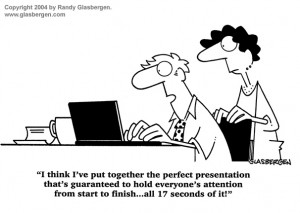When a hiring manager starts to read your cover letter and resume, you have no credibility. The reader doesn’t know you. They don’t know if they can trust you or if you are prone to exaggeration and lying.
This lack of credibility is highlighted when a job seeker leads off their cover letter with a boastful statement. Hype without substance will not establish credibility, and without credibility, your hype won’t be believed.
This mistake was exhibited in the cover letter I received today. The first sentence was pure hype:
When I saw your job listing I could not believe the uncanny resemblance of my experience to your specified duties.
Claims like this are common, but are unlikely to be believed. If you were hiring and received a bunch of resumes with claims like this, would you believe all of them? You can’t. Every applicant isn’t perfect.
In reviewing the job and resume closely, the candidate’s qualifications are not ideal. The job seeker had no experience in the industry of the company and the job seeker did not have a key technical skill. The candidate does have experience with most of the responsibilities of the positions.
A much better approach for this job seeker would have been to focus on the experience and skills of the job seeker. The job seeker was pursuing an industrial sales position and has extensive sales experience. A better start to the cover letter would have been:
I am a highly successful sales professional, with more than 25 years of industrial and technical sales experience, and am interested in your technical sales opportunity.
This sentence starts to establish some credibility by showing the candidate’s 25 years of experience. The next step is to show the performance of the job seeker through examples of his track record of success. A couple accomplishments will make a good impression.
When you write your cover letter, make sure you focus on substance and not hype.
